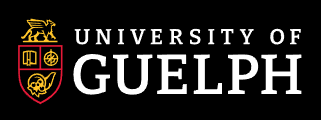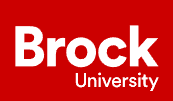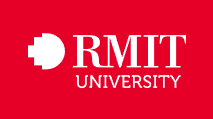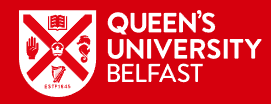The construction and practice exploration of intermediate financial accounting AI course based on knowledge map
DOI:
https://doi.org/10.63313/IJSSEH.9004Keywords:
Knowledge graph, intermediate financial accounting, AI course construction, teaching reform, digital transformationAbstract
With the rapid development of artificial intelligence technology, the application of knowledge graph in the field of education has attracted more and more attention. Based on the project of " Construction and Practice of Intermediate Financial Accounting 2 AI Course Based on Knowledge Graph " in Foshan University, this paper deeply discusses the application of knowledge graph technology in the teaching of intermediate financial accounting course. This paper first expounds the background and significance of the topic selection, then clarifies the four main objectives of curriculum construction, and analyzes in detail the gaps in the current process of achieving these objectives. Finally, the paper puts forward the targeted implementation strategy, in order to provide useful reference for the curriculum reform of accounting major in colleges and universities, promote the deep integration of accounting education and artificial intelligence technology, and cultivate innovative accounting talents to meet the needs of the digital age.
References
[1] Vial G. Understanding digital transformation: A review and a research agenda[J]. Managing digital transformation, 2021: 13-66.
[2] Renaldo N, Sevendy T. Development of intermediate accounting teaching materials: finan-cial accounting and accounting standards[J]. Reflection: Education and Pedagogical In-sights, 2023, 1(1): 1-12.
[3] Sun W, Gao X. The construction of undergraduate machine learning course in the artificial intelligence era[C]//2018 13th International Conference on Computer Science & Education (ICCSE). IEEE, 2018: 1-5.
[4] Wang Q, Mao Z, Wang B, et al. Knowledge graph embedding: A survey of approaches and applications[J]. IEEE transactions on knowledge and data engineering, 2017, 29(12): 2724-2743.
[5] Tabrizi B, Lam E, Girard K, et al. Digital transformation is not about technology[J]. Harvard business review, 2019, 13(March): 1-6.
[6] Wang J, Odell S J, Klecka C L, et al. Understanding teacher education reform[J]. Journal of Teacher Education, 2010, 61(5): 395-402.
[7] Tian L, Zhou X, Wu Y P, et al. Knowledge graph and knowledge reasoning: A systematic re-view[J]. Journal of Electronic Science and Technology, 2022, 20(2): 100159.
[8] Orland-Barak L, Wang J. Teacher mentoring in service of preservice teachers’ learning to teach: Conceptual bases, characteristics, and challenges for teacher education reform[J]. Journal of teacher education, 2021, 72(1): 86-99.
[9] Kosnik C, Beck C, Goodwin A L. Reform efforts in teacher education[J]. International Handbook of Teacher Education: Volume 1, 2016: 267-308.
[10] Kraten M, Ryack K N, Sheikh A, et al. A Tale of Two Courses: Applying Sustainability Princi-ples to the Intermediate Financial Accounting and Auditing Courses[J]. Business Education Innovation Journal, 2019, 11(1).
[11] Cuban L. Why so many structural changes in schools and so little reform in teaching prac-tice?[J]. Journal of Educational Administration, 2013, 51(2): 109-125.
[12] Ji S, Pan S, Cambria E, et al. A survey on knowledge graphs: Representation, acquisition, and applications[J]. IEEE transactions on neural networks and learning systems, 2021, 33(2): 494-514.
[13] Falcon A. Intermediate Accounting: Management Decisions and Financial Accounting Re-ports[J]. Issues in Accounting Education, 2003, 18(1): 112-114.
[14] Pries F, Baker R. A proposal for teaching introductory and intermediate accounting in an environment of international financial reporting standards and generally accepted ac-counting principles for private enterprises[J]. Accounting Perspectives, 2010, 9(1): 15-27.
[15] Huang X, Zhang J, Li D, et al. Knowledge graph embedding based question answer-ing[C]//Proceedings of the twelfth ACM international conference on web search and data mining. 2019: 105-113.
[16] Cao K, Yuan Q. Research on the Construction of Digital Creative Courses from the Perspec-tive of Artificial Intelligence[J]. International Journal of Social Science and Education Re-search, 2024, 7(5): 264-270.
[17] Plekhanov D, Franke H, Netland T H. Digital transformation: A review and research agen-da[J]. European management journal, 2023, 41(6): 821-844.
[18] Yu P, Liao X, Liu H. Research on the Construction of Gold Courses Based on Artificial Intel-ligence[C]//2nd International Conference on Educational Development and Social Scienc-es (EDSS 2025). Atlantis Press, 2025: 769-774.
[19] Nadkarni S, Prügl R. Digital transformation: a review, synthesis and opportunities for fu-ture research[J]. Management review quarterly, 2021, 71: 233-341.
[20] Jianzhan W, Chennuo X. The Theory and Path of Ideological and Political Course Construc-tion in the Era of Artificial Intelligence[J]. Frontiers in Educational Research, 2024, 7(8).
Downloads
Published
Issue
Section
License
Copyright (c) 2025 by author(s) and Erytis Publishing Limited.

This work is licensed under a Creative Commons Attribution 4.0 International License.





















